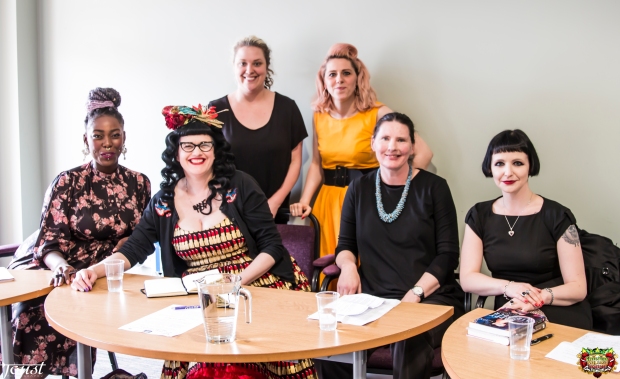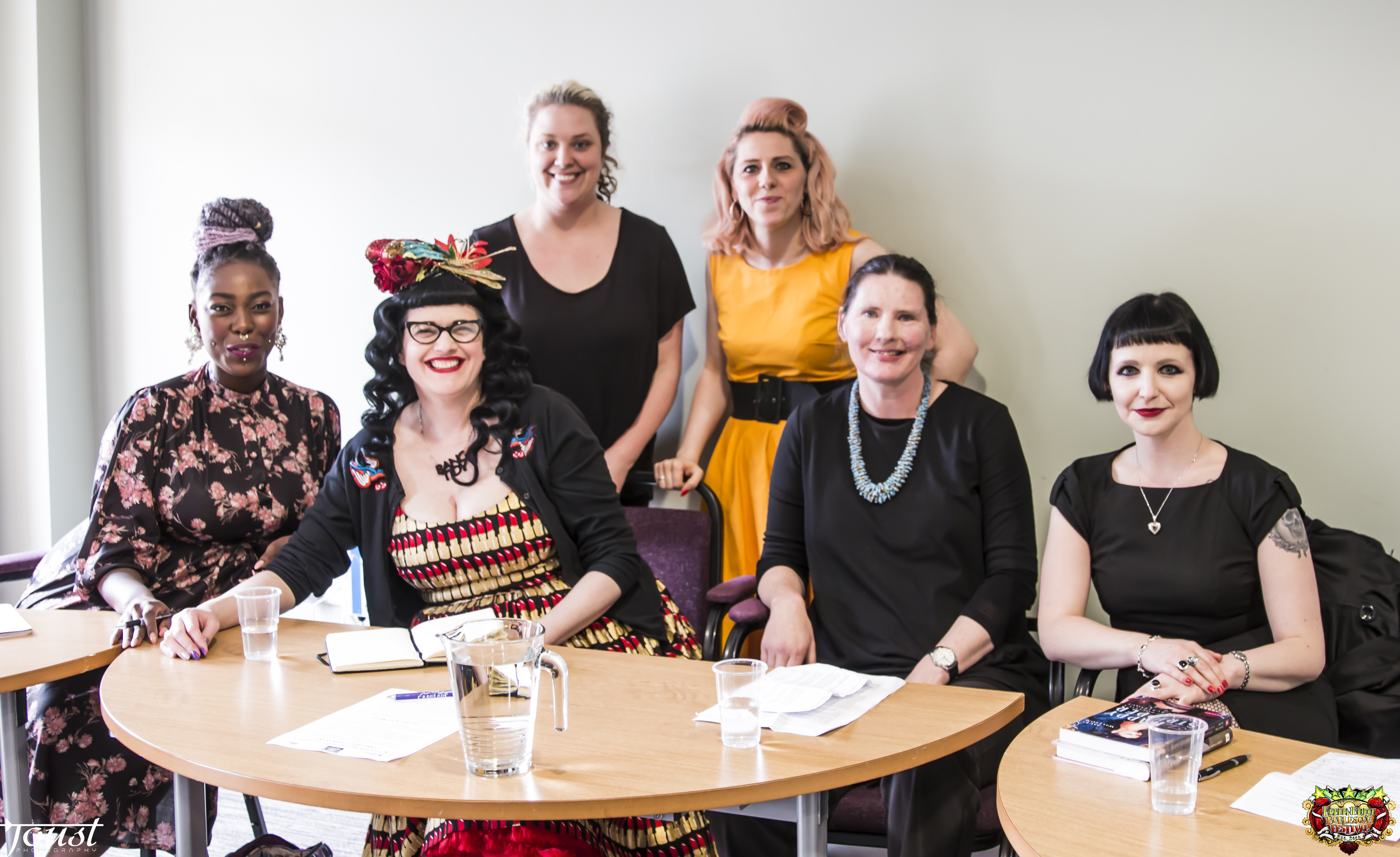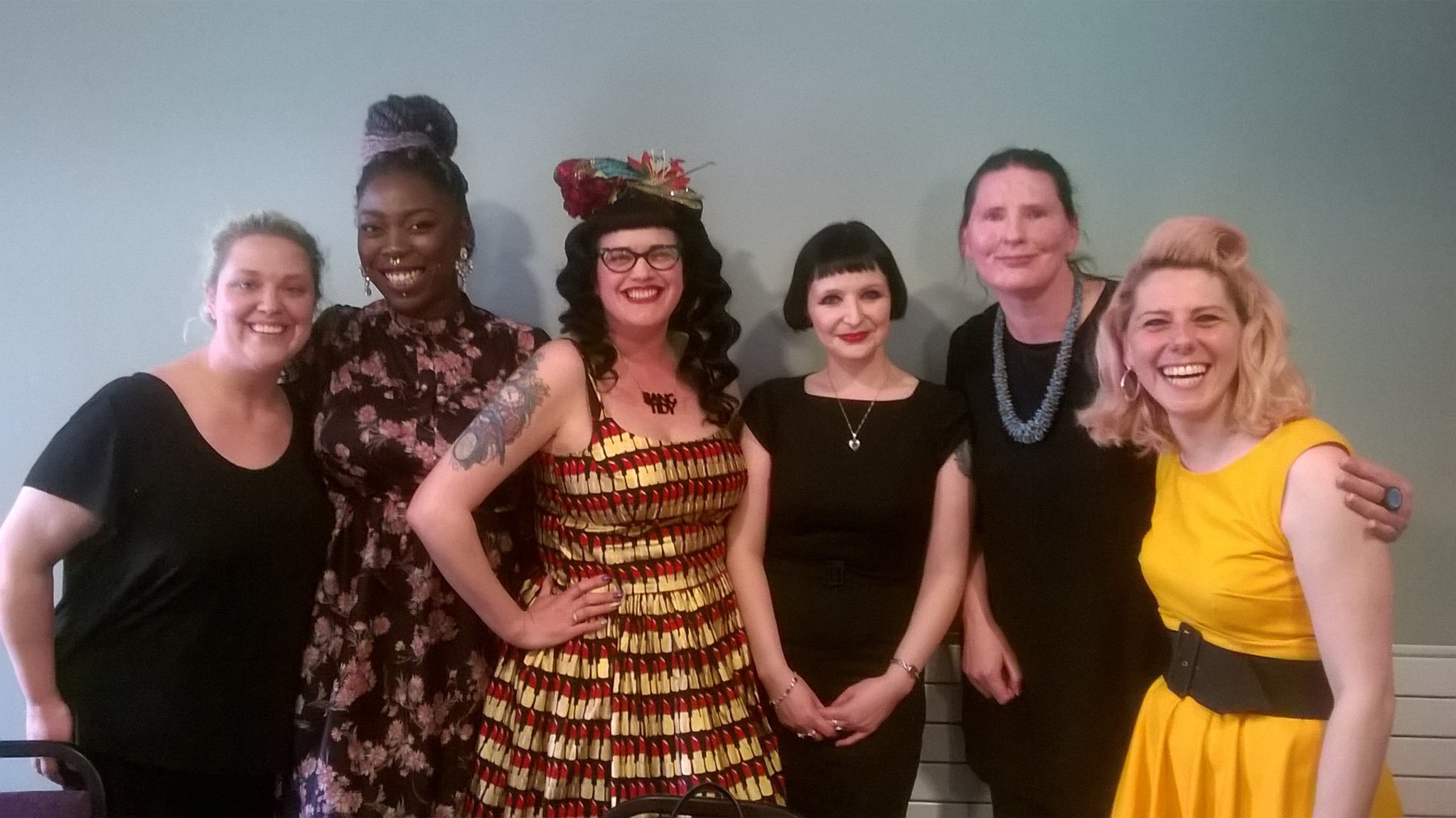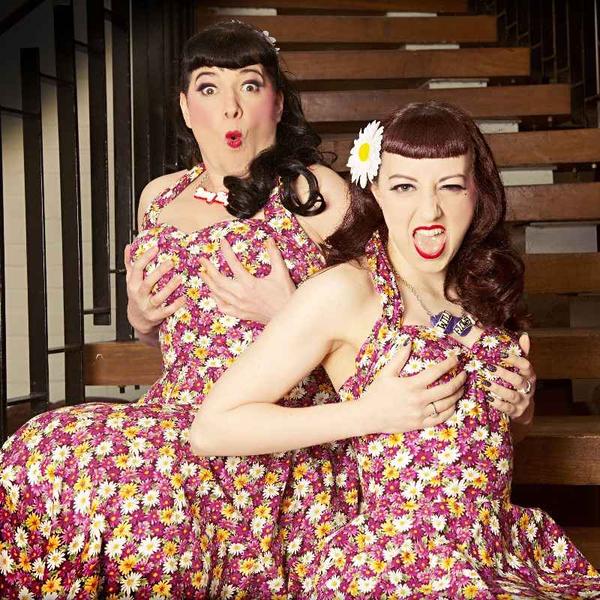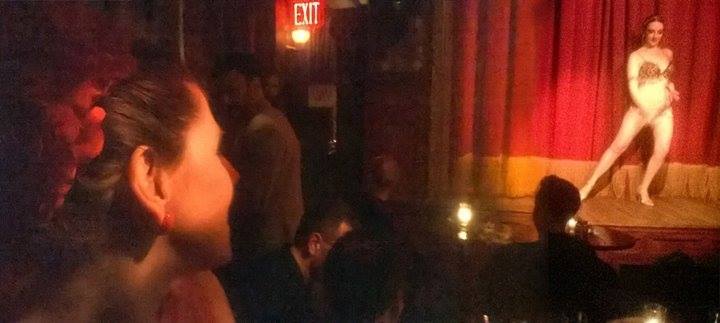I resisted the television and pop culture phenomenon that is Ru Paul’s Drag Race for a long time.
Whilst many of my burlesque and cabaret friends raved about it, studied it for cosmetic and presentation tips and told me I’d love it. But just as with Game of Thrones, the more I was told I should watch it, the more resistant I became.
I’d seen an episode once and was dismayed at the backstage cattiness. I was concerned that the programme perpetuated narrow, damaging stereotypes of gay men.
I was also concerned that by culturally appropriating a scene of which I was not a part.
Then one day I gave it another chance. We had recently got Netflix and I had season 2 to 9 to engage with, should I find I liked it. Asking friends, I was told the best season was season 6. (I have to admit I agree, though season 5 is a close second)
I started there. I fell in love with both Courtney Act and Bianca Del Rio. I ended up watching the whole season in two days and then systematically worked my way through seasons 2 to 9 and all 3 seasons of All Stars. In many instances I found myself watching individual episodes 2 or more times, and where possible, I would watch the attached Untucked episodes too.
I have LIVED for Ginger Minj, Ben DeLaCreme, Tatiana, Sharon Needles, Alissa Edwards (and her back rolls?!?) Latrice Royale, Trixie Mattel and the Bianca Del Rio.
As I watched my way through season ten, the first season whereby I had to watch in weekly instalments as they dropped, rather than binge watching as I had with every other season, my allegiances shifted from Cracker, to Eureka and finally settled on Asia O’Hara.
So what it is that appeals so much? Why was I so obsessed? Why was the programme endlessly discussed on social media and screening parties held in LGBTQ venues across the USA?
The artistry of drag and the potential it offers both for the contestants but also the viewers is a key draw. The costumes and make-up are often eye-popping.
alongside Boulet Brother’s Dragula – less polished
Another key appeal is the humanity of the programme. Be it Trinity K Bonet revealing that she has HIV, Peppermint’s gender dysphasia, or Blair Sinclair’s recent revelation that she was raped, we are given privileged access beyond the carefully constructed facades into the lives of these talented individuals.
The programme has a very earnest message of inclusion
little to acknowledge sexism on the LGBTQ scene
equally Charles’ recently went on the record as saying that
RPDR owes a considerable debt to texts such as Paris is Burning, and the NY Drag ball scene and as a historian who is particularly interested in the representation of gender and sexuality, I find the programmes clear attempts to help nurture a ‘herstory’ of drag to be particularly engaging.
Imitability. It is a programme that is crammed with endlessly memeable, snappy, occasionally hilarious catchphrases (Hallelou! Choices! Donut come for me! Hiyeee! The shade of it all! Not today Satan! – The list goes on and on)
The idea of ‘werk’ is symptomatic of the broader neoliberal economy and the programme very much perpetuates the working on one’s self as a kind of, or in the queen’s case, a literal brand, a stint on drag race raises one’s profile, (there is considerable cultural cachet to being a Ru girl) whilst simultaneously functioning as a drag finishing school. it is a platform for developing your brand and hopefully AUDIENCE and building a market for your brand. This sounds really cold and well, calculating. But it is more complicated than that.
Arguably season ten’s season’s biggest sensation was the queen who spent the least time on the show, at least in person. Her presence, or more her iconic utterance as she departed the runway for the final time, haunted the show for the remainder of the series and beyond. ‘Vanjie! Miss Vanjie!’ has entered the drag lexicon and Vanessa Vanjie Mateo, drag daughter of Alexis Mateo has become an overnight camp sensation. The excruciatingly embarrassing incident and Charles’ inability to maintain her composure
Truly awful costume but loveable
Elsewhere Australian queen and season six runner up Courtney Act went on to not only enter the UK Celebrity Big Brother house but win by a significant margin, and is now set to host her own Friday night ‘dragazine’ show on Channel Four and reality dating show The Bi Life on E.
used her time on the reality show as a platform for discussion around LGBTQ rights, issues around consent, feminism, and intersectional issues.
Drag Race features product placement and endorsements and Charles’ self-promotion delivered with a knowing wink or smile – Testament to how incredibly likeable he is.


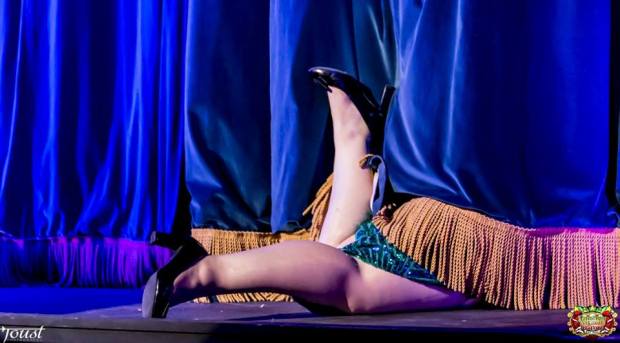
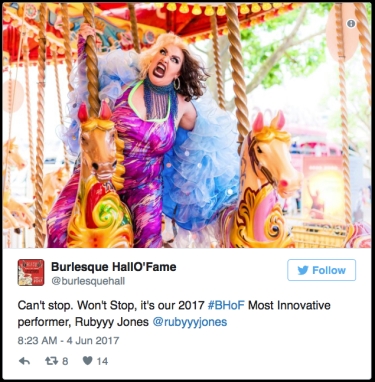 Featured in my last couple of podcasts (podcasts #2 and #3) is the wonderful queerlesque performer Rubyyy Jones, who has recently won the ‘Most Innovative’ award at this year’s prestigous Burlesque Hall of Fame Weekend event.
Featured in my last couple of podcasts (podcasts #2 and #3) is the wonderful queerlesque performer Rubyyy Jones, who has recently won the ‘Most Innovative’ award at this year’s prestigous Burlesque Hall of Fame Weekend event.